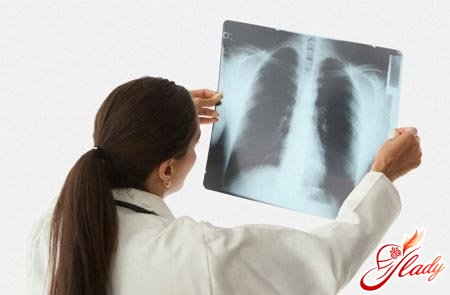 About such a concept as low aciditystomach, many have heard. But does everyone know what it is, how dangerous is low acidity, and how to deal with this problem? As practice shows, the answers to these questions are unknown to most ordinary people. Let's try to understand this issue together. As you know, the main task of gastric juice is to digest food - to break it down. And this effect is achieved due to hydrochloric acid, of which, in fact, gastric juice mainly consists. And it is the amount of hydrochloric acid that determines the notorious acidity of gastric juice. The acidity of gastric juice is measured in pH units. The stomach of any person contains a huge number of various glands, including fundic glands. These glands produce hydrochloric acid. Accordingly, the greater the number of these glands, the higher the level of acidity of gastric juice. However, the acidity of gastric juice depends not only on the number of glands, but also on how quickly the process of its neutralization occurs. After all, there are also alkaline components in gastric juice.
About such a concept as low aciditystomach, many have heard. But does everyone know what it is, how dangerous is low acidity, and how to deal with this problem? As practice shows, the answers to these questions are unknown to most ordinary people. Let's try to understand this issue together. As you know, the main task of gastric juice is to digest food - to break it down. And this effect is achieved due to hydrochloric acid, of which, in fact, gastric juice mainly consists. And it is the amount of hydrochloric acid that determines the notorious acidity of gastric juice. The acidity of gastric juice is measured in pH units. The stomach of any person contains a huge number of various glands, including fundic glands. These glands produce hydrochloric acid. Accordingly, the greater the number of these glands, the higher the level of acidity of gastric juice. However, the acidity of gastric juice depends not only on the number of glands, but also on how quickly the process of its neutralization occurs. After all, there are also alkaline components in gastric juice.
Causes of decreased gastric acidity
Of course, the acidity of gastric juice will not decrease just like that, out of nowhere. Certain prerequisites are needed for this. Such prerequisites are a number of diseases, such as:
- Gastroduodenitis
- Gastritis
- Stomach cancer
All these diseases are inevitably accompanied byor disruption of the normal functioning of the glands that produce hydrochloric acid, or even their complete atrophy - in particularly severe cases. Although, in fairness, it should be noted that very rarely, but there are cases when the acidity of the stomach decreases without any apparent reason. Reduced acidity is a very serious danger to human health, even if it is caused by banal gastritis. Normal acidity of the stomach provides a protective function of the stomach, preventing various pathogenic microflora from entering the intestine. Accordingly, reduced acidity of the stomach provokes various intestinal infections and contributes to the development of severe inflammatory processes.
Symptoms of reduced gastric acidity
Decreased stomach acidity leads to a number ofdisruption of normal digestive processes. In particular, protein digestion is disrupted, since a number of enzymes remain inactive due to low acidity. Because of this, active fermentation processes begin in the intestines. A person experiences symptoms such as:
- Bloating
- Flatulence
- Heartburn
- Pain in the area of the intestine
This condition is fraught not only withdiscomfort in the intestinal area. Since protein is poorly absorbed by the body, a large number of decay products are formed. These toxins quickly accumulate in the human body, as a result of which the immune system deteriorates significantly. In addition, all kinds of viruses and fungi, which are the causative agents of various diseases, feel very at ease. It is impossible not to mention such an annoying phenomenon as heartburn. Very often people believe that heartburn occurs only with increased acidity. However, this is not true at all - and in this case, heartburn occurs quite often. Moreover, heartburn can be very strong and painful. Perhaps you will be surprised: where does heartburn come from if the acidity of the stomach is low? But in order for heartburn to begin, a very small amount of hydrochloric acid is enough, which in any case is contained in the gastric juice. In addition, reduced acidity of the stomach inevitably leads to a deterioration in the normal motility of both the stomach itself and the intestines. As a result, a person develops the following symptoms:
- Stable constipation
In the case of decreased gastric motility, the sick person experiences regular and quite severe constipation, which cannot be eliminated with the help of conventional measures - diet and laxatives.
- Unpleasant odor from the mouth
Because there are constant changes occurring in the intestinesrotting processes, a sick person very quickly begins to have a very unpleasant putrid smell from his mouth. There are also indirect signs that may indicate a decrease in the acidity of gastric juice. These symptoms cannot directly indicate this pathology, but such manifestations should still be alarming:
- Systemic fungal diseases, repeated more than three times a year
- The presence of lamblia
- The presence of undigested food in the stools
If you notice any of these symptoms, tryseek help from a gastroenterologist as soon as possible. He will prescribe the necessary examination and select the optimal course of treatment for the disease. You should not treat the disease yourself - you can only temporarily eliminate the symptoms, nothing more.
Treatment of reduced gastric acidity
As you already understood, the treatment of this pathologyit is necessary to start as soon as possible. However, self-treatment is unacceptable, since pharmacological drugs must be selected strictly individually in each specific case, taking into account the results of tests and the person's health. There are quite a lot of drugs to treat increased stomach acidity. But drug treatment of low acidity is not an easy matter, since there are very, very few truly effective drugs. Most often, treatment is carried out using three types of drugs:
- Preparations of hydrochloric acid
You need to be especially careful with these drugs - they are used only as prescribed by a doctor and under his strict supervision.
- Stimulants
In addition, there are a number of drugs that stimulate the production of hydrochloric acid by the gastric glands.
- Herbal preparations
Preparations based on this are also used successfullywhich include herbs such as wormwood, fennel, calamus, and peppermint. These herbs also very effectively stimulate the production of gastric juice and, in particular, hydrochloric acid. But in no case should you take any herbs on your own, without a doctor's prescription. After all, herbs are not as harmless as they may seem at first glance. And do not hope that your friends have already treated a similar ailment with herbs. Herbs can be both a medicine and a poison if used incorrectly. Therefore, if you decide to treat low acidity using herbs, at least consult with your doctor. He will help you choose the most suitable herbs and determine the dosage. As mentioned above, in some cases, a decrease in the acidity of gastric juice may indicate that the patient has a predisposition to cancer. Therefore, treatment will also be aimed at preventing this extremely life-threatening disease. Of course, preventive treatment should only be carried out under the supervision of doctors. In order for the treatment to be productive, be sure to strictly follow all the doctor's instructions and recommendations.
Compliance with diet
It is impossible to normalize stomach acidity,if a person does not monitor the products he consumes. If a person has chronic gastritis with low acidity, he is shown those products that will have a beneficial effect on the production of gastric juice. These are products such as:
- Sour fruits and vegetables
- Dairy products
- Products containing a large amount of iron
In addition, some foods must be strictly excluded:
- Carbonated and caffeinated drinks
- Spicy, smoked and salted foods
Only by following a diet, instructions and recommendations of a doctor can you cope with low stomach acidity. Be healthy! We recommend reading:









